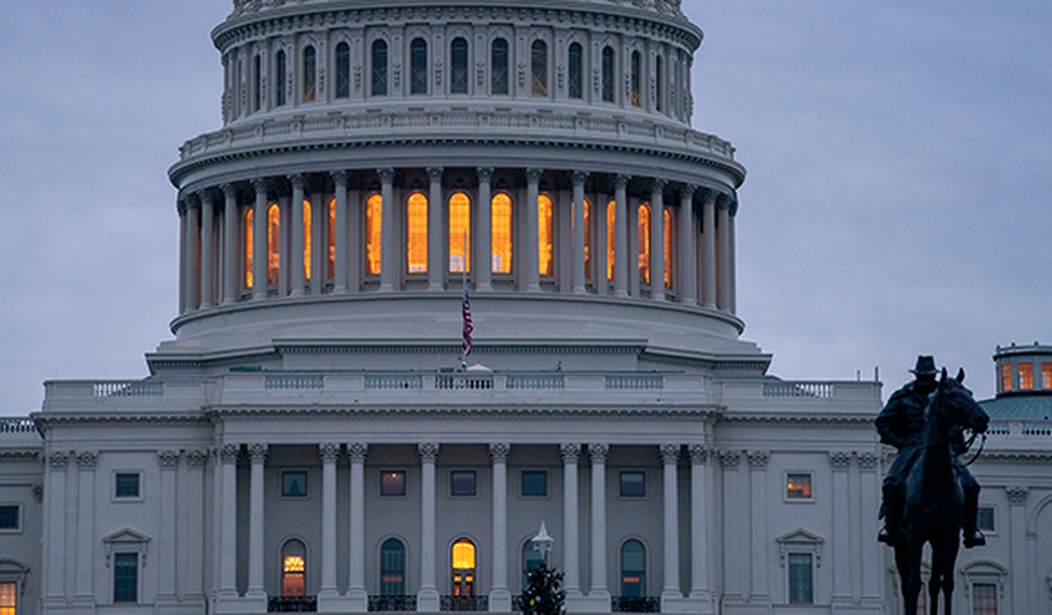While President Donald J. Trump and Speaker of the House Nancy Pelosi (D-CA) are sparring over whether the House of Representatives chamber can be used for the president’s State of the Union speech, there is another place the president can likely give his speech – the United States Senate.
There has been talk by some Senators like my former boss Sen. Rand Paul (R-KY) who suggested on Fox Business that Senate Majority Leader Mitch McConnell (R-KY) should “invite him to the Senate.” A presidential speech to the Senate would be something that is not unprecedented as Lisa Desjardins of PBS recently Tweeted, “The Senate historian tells me 9 U.S. presidents have given addresses in the Senate chamber. The most recent was 1974.” There is both an appetite and a precedent for a president to address the Senate, even though it has never been done for a State of the Union. The reason why a State of the Union was never given in the Senate is because it was never necessary. The State of the Union has been a tradition respected by both parties for as long as anybody can remember until Speaker Pelosi sabotaged the event.
The way it is supposed to work is that a resolution is introduced and passed by unanimous consent by both chambers of Congress to convene to hear the State of the Union speech. This is a non-controversial measure that is one of the few things Congress can do no matter who controls the White House. According to historians at the House of Representatives, “including President Donald J. Trump’s 2018 address, there have been a total of 95 in-person Annual Messages/State of the Union Addresses. Since President Woodrow Wilson’s 1913 address, there have been a total of 83 in-person addresses.” There is a long history and tradition with presidential addresses to the American people.
Recommended
In addition to the ritual and public attention to the speech, there have been memorable historic moments during the State of the Union. Politico listed a few highlights including President Ronald Reagan in 1982 who said, “President Washington began this tradition in 1790 after reminding the Nation that the destiny of self-government and the ‘preservation of the sacred fire of liberty’ is ‘finally staked on the experiment entrusted to the hands of the American people.’ For our friends in the press, who place a high premium on accuracy, let me say: I did not actually hear George Washington say that” to the laughter of the in attendance. President Bill Clinton said in 1996 “the era of big government is over” – wish that one were true. President George W. Bush made his famous “axis of evil” statement in a SOTU speech. These are important rhetorical moments in history.
The last State of the Union was authorized by the House and Senate without any opposition in four days. On January 25, 2018, Rep. Robert Aderholt (R-AL) introduced H. Con. Res. 101, “Resolved by the House of Representatives (the Senate concurring), That the two Houses of Congress assemble in the Hall of the House of Representatives on Tuesday, January 30, 2018, at 9 p.m., for the purpose of receiving such communication as the President of the United States shall be pleased to make to them.” This resolution passed in the House without objection the same day then passed the Senate by unanimous consent on January 29, 2018. This usually is a formality that has been withdrawn this year with the partial government shutdown.
When you take a look at the rules of the U.S. Senate, there seems to be another easy avenue for a presidential address. The Senate’s rules give the President a right to address the Senate and this may be an avenue where Leader McConnell could invite the president to speak without passing any resolution. Senate Rule IX, Paragraph 1 states, “Messages from the President of the United States or from the House of Representatives may be received at any stage of proceedings, except while the Senate is voting or ascertaining the presence of a quorum, or while the Journal is being read, or while a question of order or a motion to adjourn is pending.” This rule seems to give the President a right to address the Senate in the form of a verbal message.
There are other rules that speak to the idea that the Senate is open to presidents giving speeches. Senate Rule XIX, Paragraph 8 states, “Former Presidents of the United States shall be entitled to address the Senate upon appropriate notice to the Presiding Officer who shall thereupon make the necessary arrangements.” This provision is part of the formal debate of the Senate and provides a right for former Presidents to engage in Senate debates. Senate Rule XXIX gives the president the right to sit in the chamber next to the VP when in Executive Session. There is clearly an avenue in the Senate rules to allow both sitting and former presidents to give speeches in the U.S. Senate.
It seems clear that the Senate can host a speech by President Donald J. Trump. Obstructionism by the Speaker has made it necessary to find a suitable alternative for something resembling at SOTU. President Trump should give serious consideration to exercising his right to be in the Senate chamber and give his speech.
























Join the conversation as a VIP Member